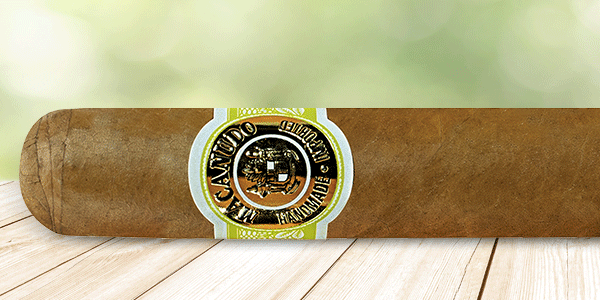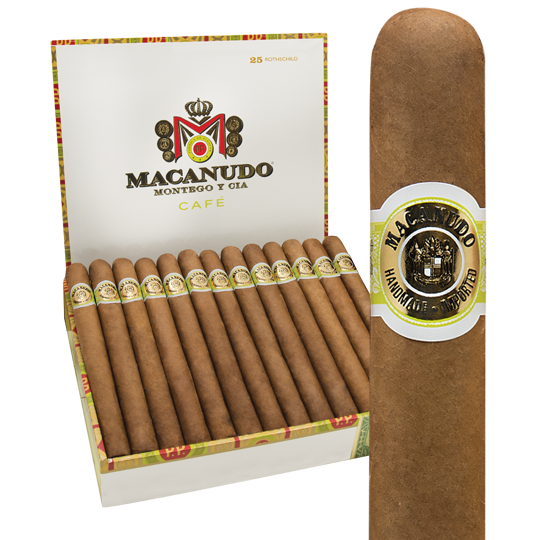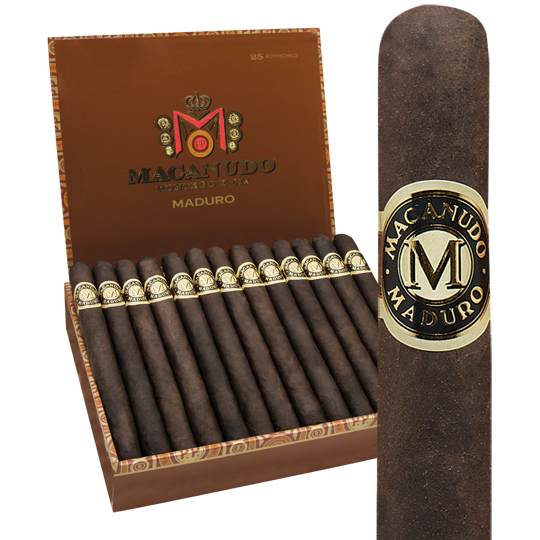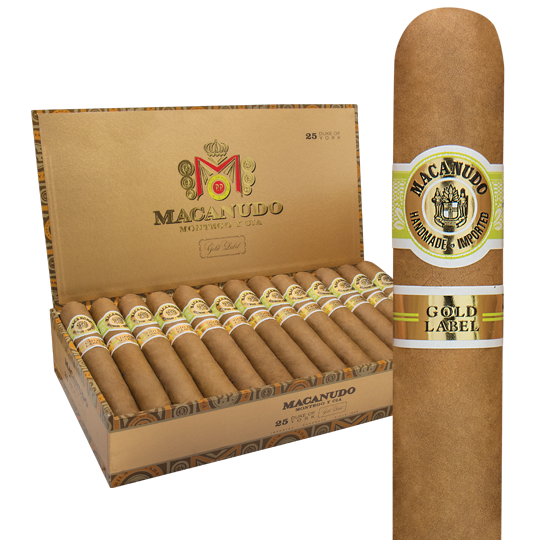Macanudo Cafe Staff Review
I’m smoking an iconic mild cigar, Macanudo Café, and I’m firing up a 5.5-by-49 Hyde Park, one of the most popular Robustos in the world. Macanudo is one of those cigar brands people who don’t even smoke cigars are familiar with. That’s because you can find Macanudo cigars everywhere cigars are sold, from premium cigar shops to convenience stores and gas stations. On top of its widespread availability, Macanudo Café is a very mellow blend, making it an ideal cigar for beginners.
The Macanudo brand rose to prominence in the late 1960s and early 1970s when Edgar Cullman Sr., the owner of General Cigar, oversaw the company’s growth as a supplier of non-Cuban premium cigars to an eager U.S. cigar market following the Cuban trade embargo. Macanudo ushered in a new genre of milder, creamier cigars with Connecticut wrappers that American consumers enjoyed. Macanudo was initially made in the company’s factory in Kingston, Jamaica, but it’s been handcrafted in the Dominican Republic for decades.
Macanudo Café cigars come in white-and-green boxes and bands with shiny gold accents. The packaging looks basic, but it’s immediately recognizable because it hasn’t changed much in years. Macanudo Café is blended from Dominican and Mexican long-filler tobaccos tucked in a Mexican San Andrés binder, and the recipe is finished in a light-tan Connecticut Shade wrapper leaf. After selecting a Hyde Park from a fresh box, the cigar shows off a mostly seamless wrapper with an even density from head to foot when I perform a gentle pinch test. Because Macanudo cigars are produced on such an epic scale, I expect the cigars to be consistent.
Once I’ve clipped the cap, the cold draw reveals a grassy, sweet taste. Tasting notes of nuts, cedar, and pine mingle over a creamy foundation as the cigar progresses in the first five minutes. The texture is a touch chalky and dry, but a mellow profile of white pepper and nuts offers balance. Macanudo Café is neither complex nor offensive. It’s a basic mild smoke that doesn’t possess too much nicotine or spice. And that’s why it appeals to so many novices.
A stable, light-gray ash forms at the foot, and I’ve only had to tap it off a few times after nearly a half hour of smoking. The Café is a soft, silky blend that you can retrohale easily. It goes down like a cup of warm milk. Aficionados with a well-developed palate will likely crave cigars with more complexity. But if you’re looking for a simple, mild smoke you can enjoy in the morning, Macanudo Café won’t disappoint. I’m docking a few points in my rating because the burn meandered and got a little messy in the second half. You can smoke a Hyde Park for nearly fifty minutes if you take your time.
Many years ago, I had the opportunity to meet Benji Menendez when he was Vice President of General Cigar, the parent company of the Macanudo brand. Now retired, Menendez brought a wealth of cigar-making expertise to the General Cigar portfolio, which includes famous Cuban-legacy brands like Cohiba, Partagas, and Punch. Benji’s father, Alonso Menendez, created the original Montecristo brand in Cuba in 1935. Benji began working as an interpreter for American machinists who visited his father’s cigar factory to make equipment repairs, leading to a lifetime career in the premium cigar industry.
Order Macanudo Café if you’re in the minority of cigar lovers who’ve never had it. You might enjoy it, it might be too mild, or it might not be your thing. But in the cigar world, Macanudo is worth smoking because it’s as famous as apple pie.







